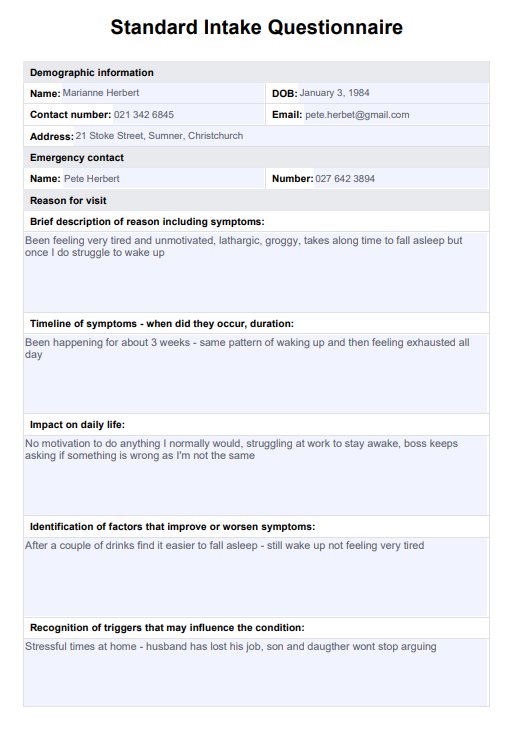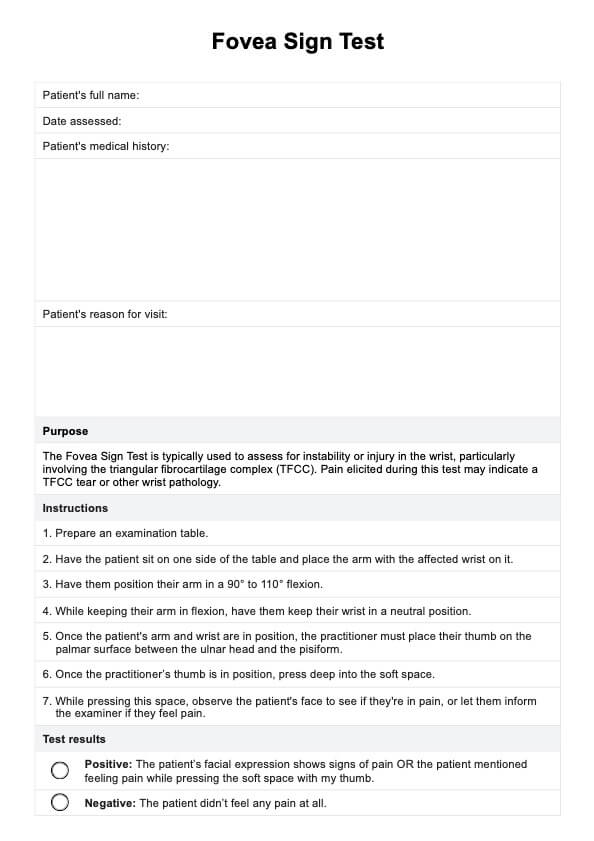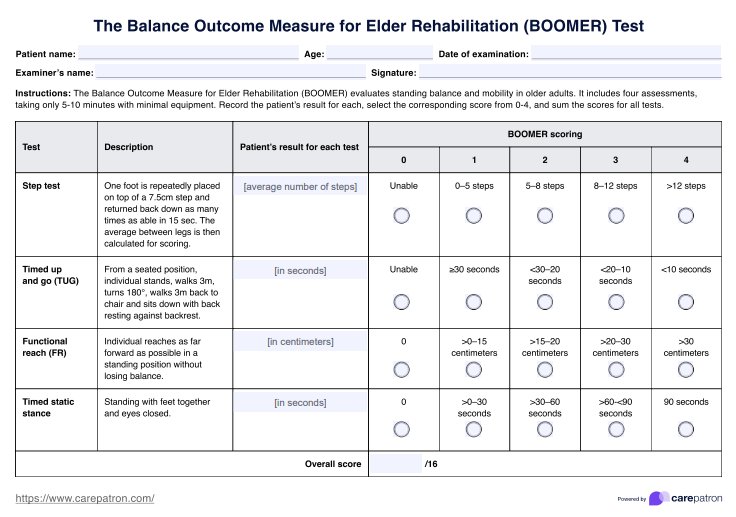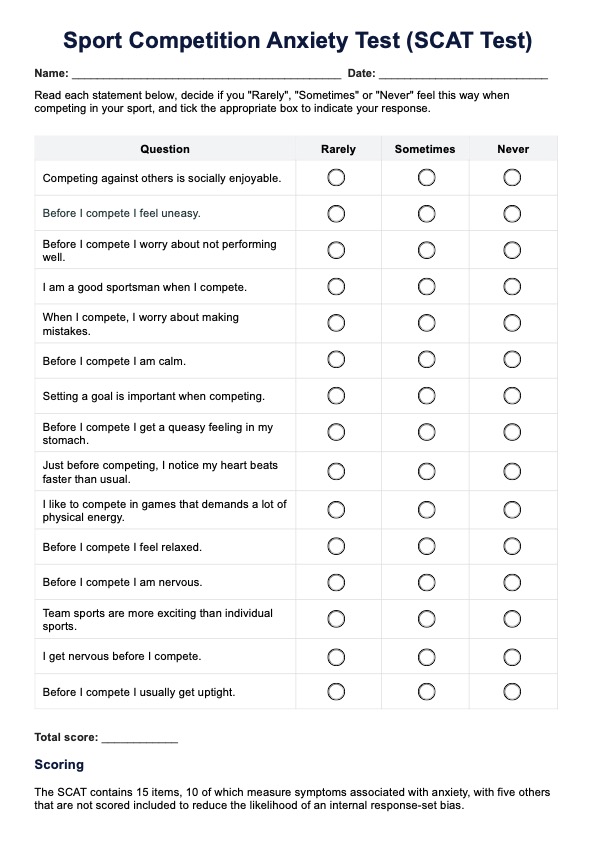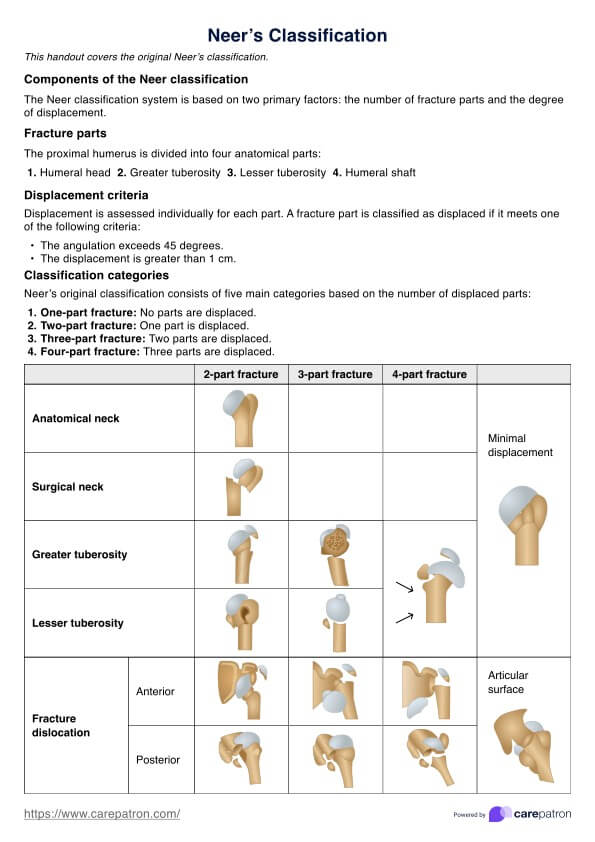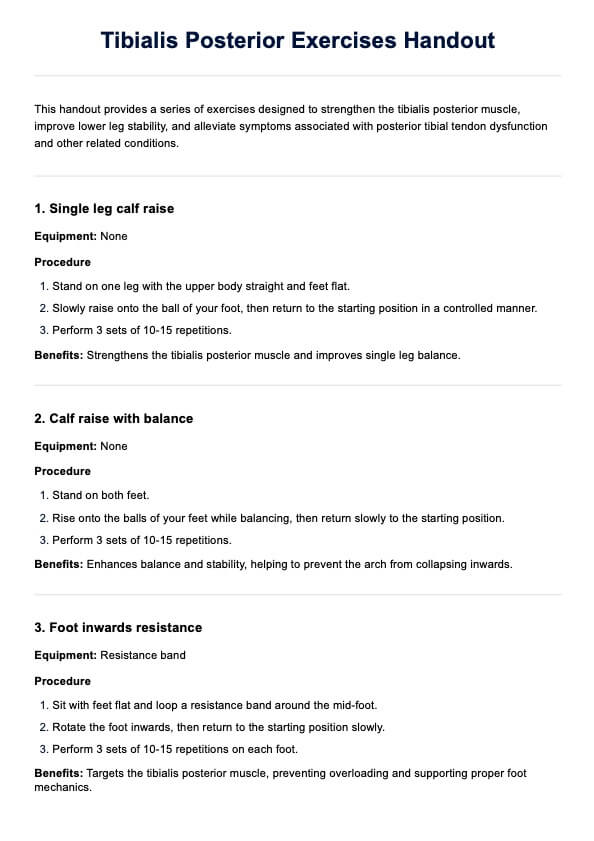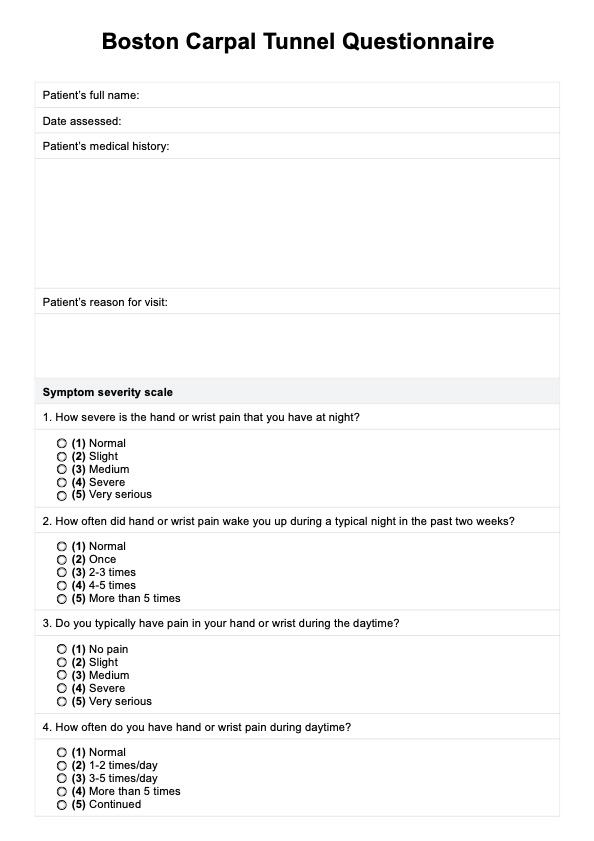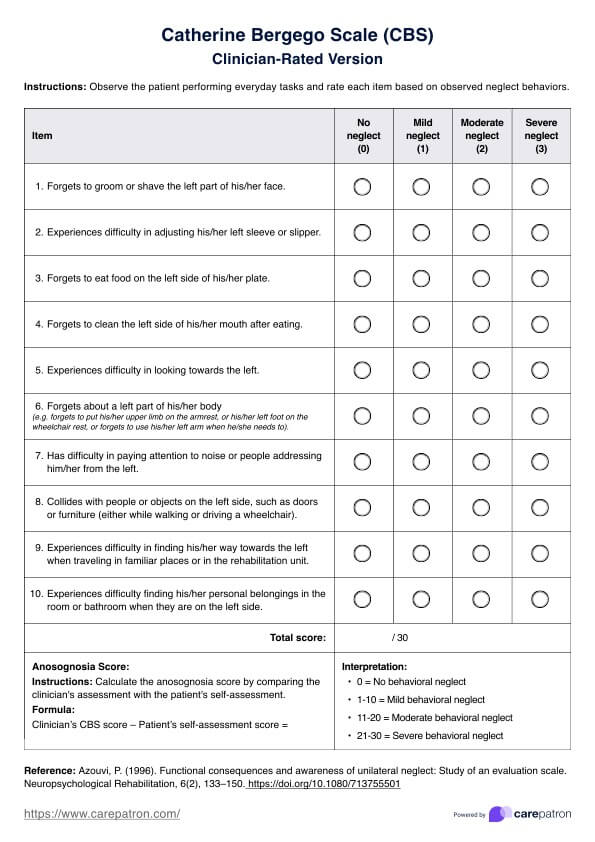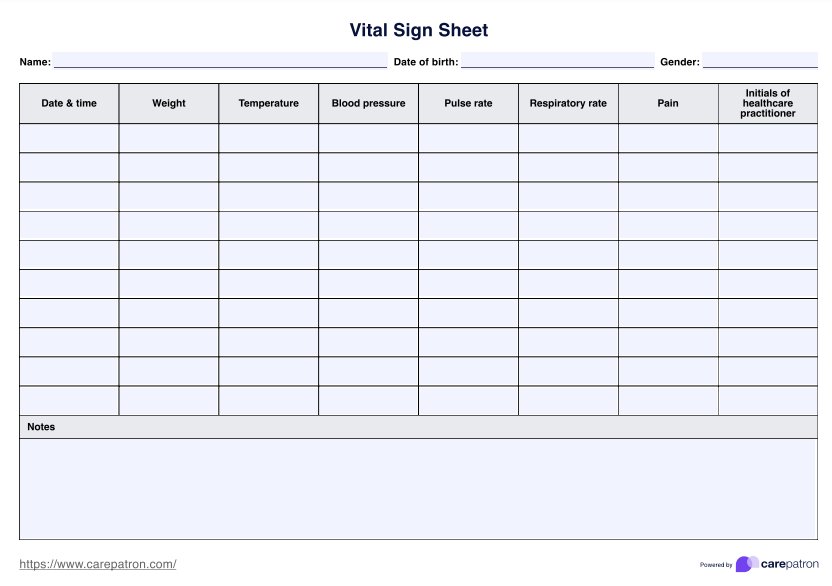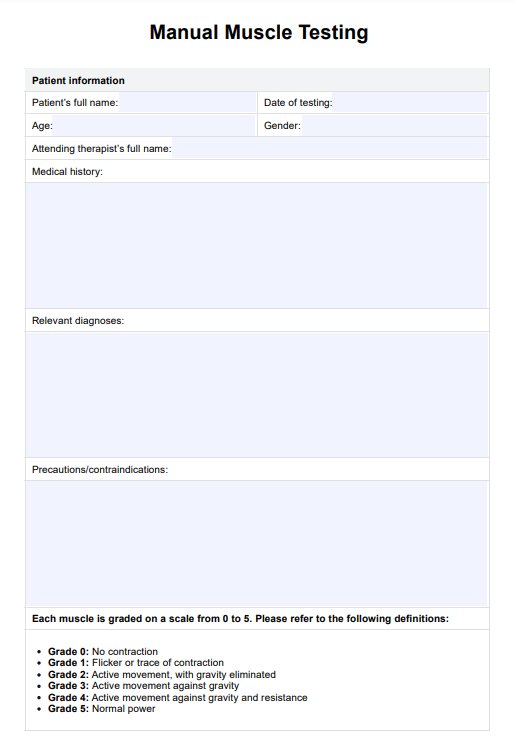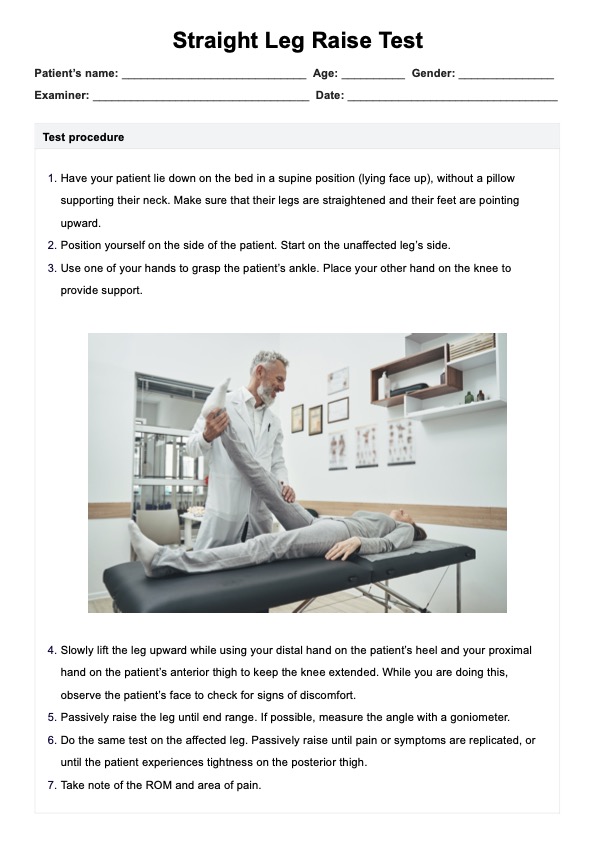Standard Intake Questionnaire Template
Access our Standard Intake Questionnaire Template to enhance the initial touchpoint with patients in their healthcare process.


What is a standard intake questionnaire?
The initial patient visit sets the stage for the entire healthcare relationship. A well-designed standard intake questionnaire is an effective tool to gather relevant information efficiently, allowing healthcare practitioners to provide the best possible care from the very first encounter. Unlike a generic form, a standard intake questionnaire is specifically designed for your practice and patient population. This form, sometimes called a client intake form or patient intake form, depending on the field, acts as a roadmap to understanding a patient's health journey.
Having your own questionnaire of intake questions for therapy can help streamline your intake process. This is especially helpful for specialized practices that require standardized questionnaires that need specific demographic questions and other inquiries.
Standard Intake Questionnaire Template
Standard Intake Questionnaire Template Example
How to use this template?
Our Standard Intake Questionnaire Template is designed to help practitioners have a standard intake template that they can readily use in clinical practice. Here is a step by step guide to make the most of this template:
Step 1: Access the template
From this guide, click "Use template" to access and edit the template within the Carepatron app before you can print or send it as an online questionnaire. You can also click on "Download" for a fillable PDF template.
Step 2: Administer or use the template
Use the template as a guide during the initial patient visit or consultation to gather important information. This specific questionnaire covers demographic information, the reason for visit, medical history, lifestyle habits, and additional notes.
Step 3: Sign and store the document
Sign the intake template and store it in a secure physical location or through a HIPAA-compliant patient record software.
What information does the client intake form gather?
The Standard Intake Questionnaire is the foundation for understanding your patients' health. from paients to ensure that the best can be provided in the long run. With its therapy intake questions, you can gather the critical information needed to deliver exceptional care. Here's a breakdown of key areas to explore with your patients for a client intake form:Here's a breakdown of key areas to explore with your patients for a client intake form:
Demographic information
This section establishes a baseline and ensures smooth communication. Here are some essential details to collect:
- Full name
- Date of birth
- Contact information (phone number, email address, home address)
- Emergency contact information
Reason for visit
This focuses on the patient's current concerns. The following are key areas to gain information about:
- Brief description of reason, including symptoms
- Timeline of symptoms - when did they occur, duration
- Impact on daily life
- Identification of factors that improve or worsen symptoms.
- Recognition of triggers that may influence the condition.
Medical history
Understanding a patient's medical history can be a way to paint a clearer picture of their current condition. This process could also involve references from other physicians and specialists, such as former mental health providers. The intake form typically gathers details on the following:
- Past illnesses and surgeries
- Current medications, including over-the-counter drugs and supplements
- Any known allergies to medications or substances
- Immunization history
- Current mental health concerns, previous diagnoses, past treatments
- Family history of specific conditions relevant to your practice
Lifestyle habits
A patient's lifestyle choices significantly impact their overall health. The following are some key areas to explore:
- Diet, including dietary requirements
- Exercise and other activities
- Sleep patterns
- Use of tobacco, alcohol, or other substances
Where relevant, it may be necessary to include more practice-specific questions adapted to the specialty of care being received. For instance, information regarding social history, such as family dynamics, living situation, and support systems, may be necessary to fully understand the patient.
Importance of the intake form
The initial patient visit sets the stage for your entire healthcare relationship. While it might seem simple, a well-designed standard intake form significantly impacts the quality of care you can provide. A well-crafted intake form benefits both you and your patients through the following:
- Streamlined efficiency: Imagine gathering crucial medical information during the consultation itself. This frees up valuable time during the visit, allowing you to focus on in-depth discussions, examinations, and personalized care plans.
- Enhanced accuracy: Have you ever worried about missing key information during a busy consultation? A standardized intake form ensures consistency by prompting patients for all the essential areas: demographics, medical history, lifestyle habits, reason for visit, and family history. This comprehensive approach minimizes the risk of overlooking crucial details during onboarding that could impact diagnosis and treatment.
- Empowering patient engagement: Clear and concise questions within the intake form encourage patients to participate in their healthcare, especially among new patients actively. By providing accurate and all the necessary information information upfront, they become partners in the care process, leading to better overall outcomes.
Benefits of having a Standard Intake Questionnaire Template
The initial patient visit sets the tone for your entire healthcare journey. While gathering information might seem routine, a well-designed SStandard IIntake QQuestionnaire TTemplate can be a game-changer. The following show cases some of the benefits:
Efficient time management
When you have a Standard Intake Questionnaire Template at your disposal, you're off to a great start. It reduces the need for designing questionnaires each time a new patient walks in. This standardization not only streamlines the intake process but also saves clinicians' time, allowing you to focus on the actual care.
Comprehensive health overview
An intake questionnaire can provide a comprehensive overview of a patient's health, capturing crucial information that might not surface in a general conversation. This gives a fuller picture of their overall health, exploring how mental, emotional, and physical symptoms related to their experience can guide comprehensive and individualized care plans.
Supporting legal compliance
All healthcare providers are legally required to maintain thorough patient records. A standard intake questionnaire forms a vital part of these records, ensuring you're legally compliant while also providing essential clinical information. When you have an intake form template ready, you can proceed to further steps more efficiently.
Commonly asked questions
An intake form is designed to collect essential personal, medical, and lifestyle information from patients at the beginning of their healthcare journey. It helps healthcare providers comprehensively understand the patient's health history and current status, enabling tailored and efficient care planning.
A good intake questionnaire is concise yet comprehensive, easy to understand, and covers all necessary health aspects, including personal details, medical history, medications, allergies, lifestyle habits, and mental health. It is also sensitive to patient privacy and complies with healthcare regulations.
The time to complete an intake questionnaire can vary, but it takes about 15 to 30 minutes on average. The length and time can depend on the complexity of the patient's health history and the thoroughness of the questionnaire.



